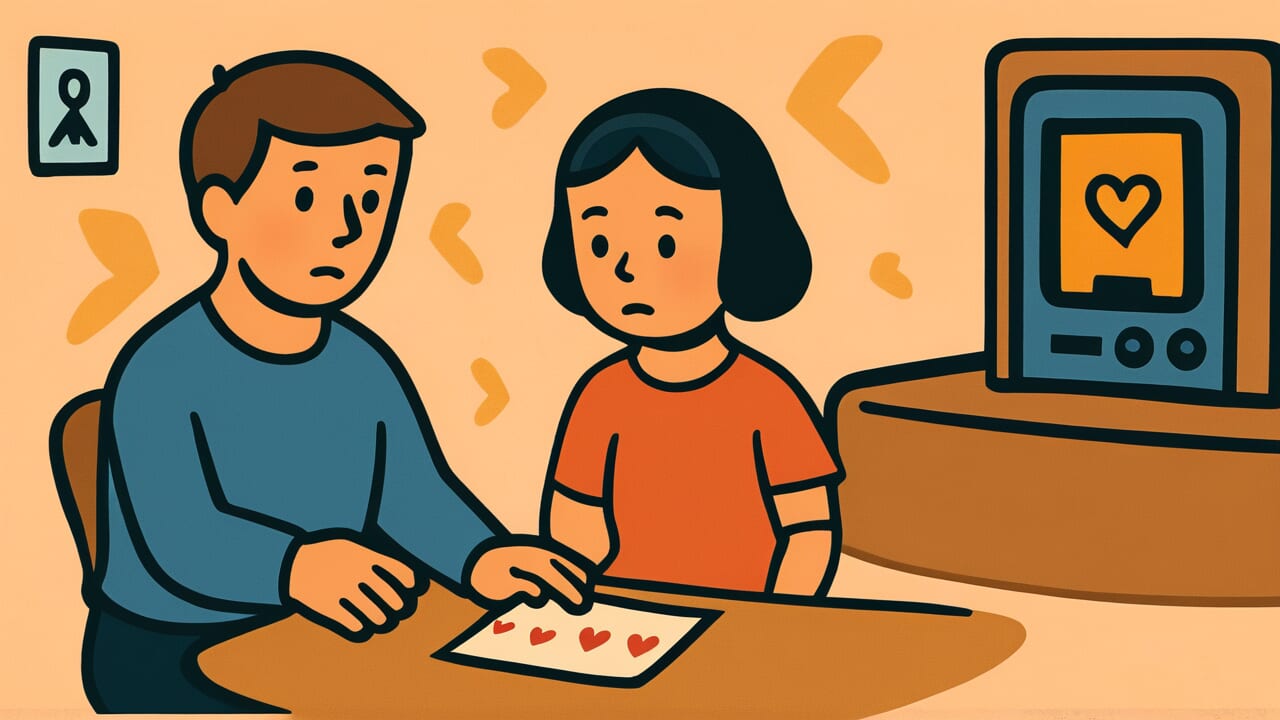How to Read “Parents don’t know their child’s heart”
Ko no kokoro oya shirazu
Meaning of “Parents don’t know their child’s heart”
This proverb means that parents cannot fully understand their child’s feelings. Parents tend to think they know their children better than anyone else. But in reality, they cannot completely grasp their child’s inner world.
Children have their own thoughts and emotions. They don’t share everything with their parents. As children grow, they develop sides of themselves that parents never see.
They carry worries about friendships, anxieties about the future, and secret dreams and hopes. These thoughts often go far beyond what parents imagine.
This proverb warns parents against assuming they “know everything” about their children. It’s also used when misunderstandings arise between parents and children to point out the parent’s lack of understanding.
Even with deep parental love, that love alone cannot reach every corner of a child’s heart. This saying teaches us about the fundamental difficulty in parent-child relationships.
Origin and Etymology
No clear written records exist about the origin of this proverb. However, we can make interesting observations from how the phrase is constructed.
Actually, “Oya no kokoro ko shirazu” (Children don’t know their parent’s heart) is more commonly known. It expresses feelings from the parent’s perspective. “Parents don’t know their child’s heart” reverses this viewpoint.
These two sayings likely emerged as paired expressions. They capture the same theme of parent-child relationships from different angles.
Traditional Japanese family values have always emphasized the depth of parental love for children. Yet people have always known from experience that children have their own world. Parents find it difficult to fully understand that world.
The complex emotions of teenagers and children with troubles they cannot share with parents have existed across all eras.
This proverb contains a certain humility. It recognizes that children have their own inner world, not just a one-sided view from the parent’s position.
It expresses in simple words the universal human challenge of mutual understanding between parents and children.
Usage Examples
- My daughter doesn’t consult me about anything, but “Parents don’t know their child’s heart,” so she’s probably thinking about many things I’m not aware of
- I was surprised when my son suddenly said he wanted to change his career path, but “Parents don’t know their child’s heart”—he may have been struggling with this without my knowledge
Universal Wisdom
The proverb “Parents don’t know their child’s heart” touches on a fundamental truth about human relationships. No matter how close the relationship, it’s impossible to completely understand another person’s inner world.
Parents give birth to their children, raise them, and watch their growth every day. They witness their child’s smiles and tears, joys and sorrows, closer than anyone else. Yet even so, they cannot know everything in their child’s heart.
This is because the human inner world is essentially personal. It cannot be fully shared.
This truth applies not only to parent-child relationships but to all human connections. Even between spouses, friends, or lovers, no one can completely understand the depths of another’s heart.
Everyone lives carrying parts they don’t show others, emotions they cannot put into words, and thoughts they haven’t sorted out even for themselves.
This proverb has been passed down through generations because people have repeatedly experienced this truth. The fact that walls of understanding exist even between parents and children, who should be closest, shows the loneliness of human existence.
At the same time, it teaches us the importance of continuing to reach out and make efforts to understand each other.
When AI Hears This
People often think parents should understand children’s feelings because parents were once children themselves. But from an information theory perspective, the opposite actually happens. Parents do have abundant “childhood data,” but that information was collected 20 or 30 years ago in a different environment.
The information today’s children receive comes through completely different “channels.” Trying to understand a child suffering from SNS bullying using experience data from an era without smartphones or social media is like trying to fix a 4K TV with an analog TV repair manual.
What’s more interesting is that the more information parents have, the more “noise” increases. A powerful filter called “my own experience” operates in the parent’s brain. It distorts the signals transmitted from the child.
For example, when a child says “I’m tired,” the parent searches their memory database and compares it with “my own tiredness from the past.” This produces a mistaken interpretation: “Getting tired from just that much?”
Meanwhile, children still lack the “encoding ability” to accurately convey their state to parents. They have emotions they cannot verbalize, relationships they struggle to explain, and situations where they don’t even understand the problem themselves.
In a communication system where both sender and receiver have errors, information inevitably degrades. Having lots of information and accurately transmitting it are completely different issues.
Lessons for Today
This proverb teaches modern people the importance of maintaining an attitude of trying to understand. When parents accept the premise that they cannot fully know their child’s heart, better communication actually emerges.
In modern society, parent-child conversation time has decreased. The gap in understanding has widened even further. However, admitting that complete understanding is impossible doesn’t mean giving up.
Rather, it leads to a humble attitude: because we don’t understand, let’s listen more and have more dialogue.
As a parent, you can listen to your child’s words, pay attention to changes in their expressions, and consider the meaning of their silence. When you let go of the assumption that you “understand,” the door to true understanding opens for the first time.
This lesson applies not only to parent-child relationships but to all relationships: bosses and subordinates at work, teachers and students, and beyond.
Maintain humility that you cannot fully understand the other person, yet continue making efforts to understand. That attitude is the key to building true trust.



Comments